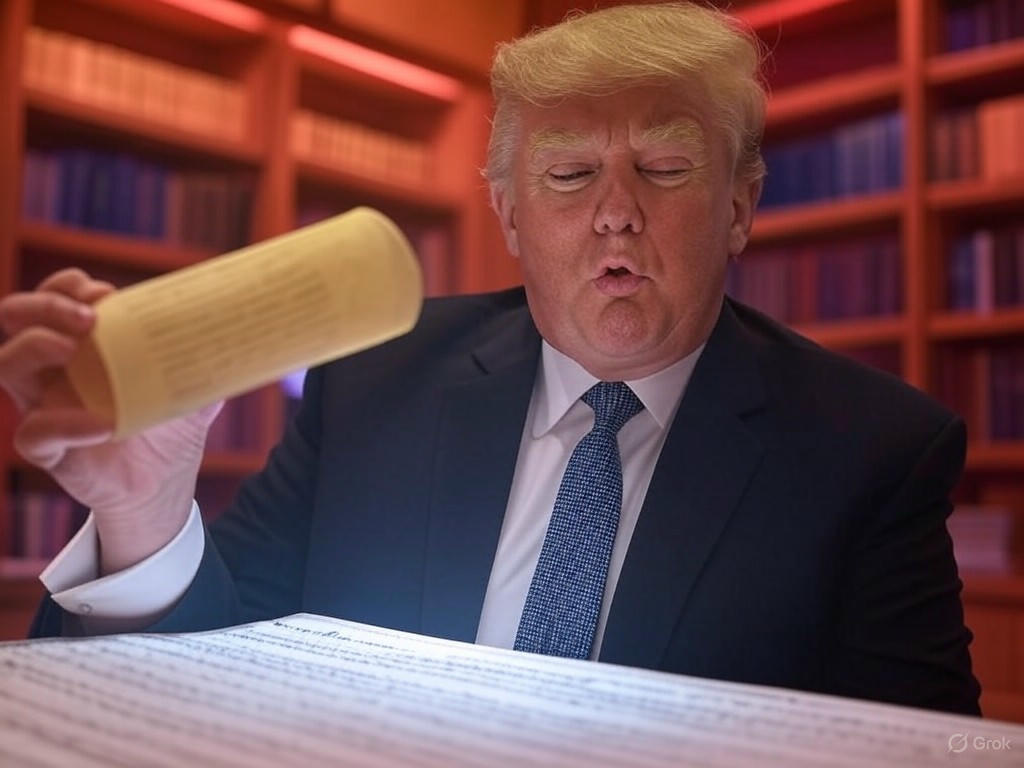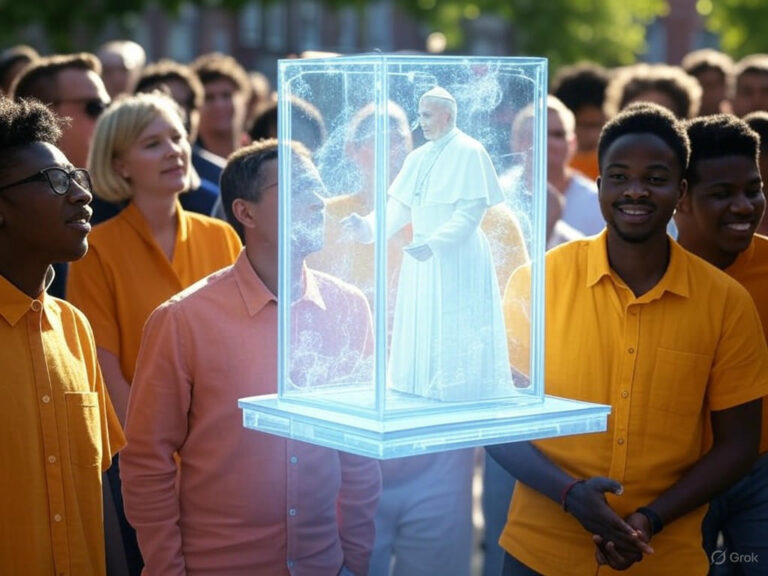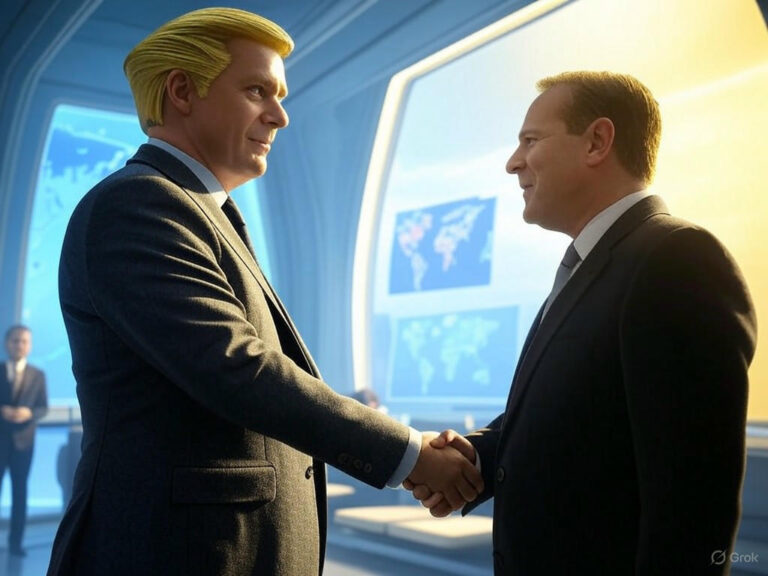
Trump’s Shocking Response to Upholding the Constitution
Unprecedented Uncertainty from the White House
Have you ever wondered what happens when a president questions the very foundation of American democracy? In a moment that has gripped the nation, former President Donald Trump expressed doubts about his duty to uphold the Trump Constitution ideals during a high-profile interview. This ambiguity has intensified concerns, especially as his administration’s aggressive immigration policies continue to dominate headlines, raising questions about due process and executive power.
Trump’s remarks didn’t just surprise political analysts—they echoed through everyday conversations, highlighting how quickly core principles can come under scrutiny. For instance, imagine a leader tasked with protecting a nation’s blueprint suddenly wavering; it’s a scenario that feels both surreal and urgent in today’s polarized climate.
The Trump Constitution: Trump’s Controversial Interview and Its Implications
During an NBC’s Meet the Press segment, interviewer Kristen Welker challenged Trump on whether the Constitution demands due process for everyone, including migrants. His response? A startling “I don’t know,” which immediately tied back to the broader Trump Constitution debate. This exchange wasn’t just a soundbite; it revealed a potential gap between presidential rhetoric and constitutional reality.
Trump deflected by mentioning his legal team, saying, “I have brilliant lawyers that work for me, and they are going to obviously follow what the Supreme Court said.” But let’s pause—does relying on advisors absolve a leader from knowing the basics? It’s a question many are asking as we unpack how this intersects with ongoing immigration challenges.
Exploring Due Process Under the Trump Constitution Framework
The Fifth Amendment clearly guarantees due process for all, yet Trump’s uncertainty has fueled the Trump Constitution conversation. He remarked, “It might say that, but if you’re talking about that, then we’d have to have a million or two million or three million trials.” Picture the ripple effect: families separated, lives disrupted, and a system strained by such policies.
This isn’t just legal jargon—it’s about real people. For example, think of migrants facing deportation without a fair hearing; it’s a human story that underscores why these protections matter. Experts argue that ignoring them could erode trust in our institutions, making Trump’s stance a pivotal point in modern governance.
Presidential Oath Versus Policy in the Trump Constitution Era
When Trump took the oath to “preserve, protect, and defend the Constitution,” it was more than words—it’s the bedrock of his role. Yet, his administration’s actions, like authorizing judges to dismiss asylum claims without hearings, have drawn sharp criticism in the Trump Constitution discussions. These moves often clash with the oath’s intent, leaving observers to question the balance between policy goals and constitutional duties.
- Streamlining deportations at the expense of legal reviews
- Cutting funds for unaccompanied minors’ legal aid, which limits their voices
- Expanding expedited removals, potentially bypassing key checks
- Challenging Supreme Court decisions on wrongful deportations
What’s your take on this? If a policy feels urgent, does it justify bending the rules? Trump’s “I don’t know” response only adds fuel to this fire, prompting debates on whether such ambiguity weakens democratic norms.
Legal and Political Ramifications of the Trump Constitution Ambiguity
The fallout from Trump’s comments has rippled across legal circles, with experts warning that downplaying constitutional responsibilities could set dangerous precedents. In the Trump Constitution context, this uncertainty challenges the separation of powers, where the executive branch must respect judicial oversight.
For instance, cases like the wrongful deportation of individuals despite court orders highlight the real-world impact. As one analyst noted, “This isn’t about politics; it’s about the rule of law.” By fostering these debates, Trump’s stance invites us to reflect on how policies shape our shared values.
A Closer Look: Balancing Constitutional Clarity and Executive Actions
To break it down, here’s a simple comparison that might help clarify the Trump Constitution tensions:
| Constitutional Pillar | Trump’s Position | Resulting Policies |
|---|---|---|
| Defend and uphold the Constitution | Expressed uncertainty | Rapid deportations and resistance to court mandates |
| Ensure due process rights | Deferred to legal advisors | Reduced hearings and aid for migrants |
| Adhere to Supreme Court decisions | Cited alternative interpretations | Delayed compliance in deportation cases |
This table isn’t just data—it’s a reminder of how interconnected these elements are in the Trump Constitution narrative.
The Broader Immigration Debate and Trump Constitution Principles
At its core, the Trump Constitution issue is intertwined with immigration reforms, where policies like mass deportations have sparked widespread controversy. Trump’s administration referenced old laws to detain immigrants en masse, even admitting errors but claiming limited authority to fix them.
Key Immigration Moves Amid Trump Constitution Scrutiny
- Leveraging a 1798 law for large-scale detentions in secure facilities
- Acknowledging wrongful deportations yet resisting reversals
- Balancing Supreme Court nods with assertions of executive flexibility
These actions raise a key question: How do we protect borders without undermining due process? It’s a dilemma that echoes in communities affected by these policies, urging a more balanced approach.
Public and Legal Expert Reactions to Trump Constitution Concerns
From scholars to citizens, reactions to Trump’s constitutional ambiguity have been swift and varied. A constitutional law expert stated, “The president’s oath is unequivocal, and any doubt erodes our democratic foundation.” This sentiment captures the unease rippling through the Trump Constitution discourse.
Consider this: If leaders can question basic duties, what does that mean for everyday rights? Such hypotheticals make the topic relatable, encouraging us to engage and advocate for clarity in governance.
Political Strategies in the Trump Constitution Landscape
Some view Trump’s comments as calculated, framing judicial hurdles as barriers to bold action. In the Trump Constitution realm, this messaging resonates with supporters who prioritize decisiveness over process. But is it a smart move or a risky gamble?
It appeals to those frustrated with slow systems, yet it prompts warnings about overreach. For example, bypassing checks might solve short-term issues but could invite long-term instability, a lesson from history we’re still learning.
The Ongoing Debate Over Executive Power and Trump Constitution Norms
As we navigate these waters, the Trump Constitution debate shows no signs of fading. It’s forcing a reevaluation of how much power one branch should hold, with implications for future administrations. What strategies could prevent such conflicts? Perhaps stronger emphasis on education and transparency.
Here are a few tips for staying informed: Follow reliable news sources, discuss with peers, and advocate for policies that align with constitutional values. It’s about active participation, not passive observation.
Conclusion: A Defining Moment in the Trump Constitution Saga
In wrapping up, Trump’s shocking response isn’t just a footnote—it’s a wake-up call for democracy. As immigration policies evolve, so must our commitment to the Constitution’s core tenets. This moment challenges us to reflect, engage, and ensure our leaders uphold these principles.
If this has sparked your interest, why not share your thoughts in the comments below? Explore more on our site or connect with others passionate about these issues—your voice matters in shaping the conversation.
References
- Politico. (2025, May 4). “I Don’t Know”: Trump on Constitution. Link
- The Daily Beast. Trump: “I Don’t Know” If It’s My Job to Uphold Constitution. Link
- TIME. Trump on Upholding the Constitution Amid Policies. Link
- PEOPLE. Donald Trump Says “I Don’t Know” on Constitutional Duties. Link
- ACCC Report on Media Impact. Link
- Columbia Law Scholarship. Rights as Trumps PDF. Link
Trump Constitution, Trump interview, presidential oath, due process, immigration policy, executive power, constitutional debate, Supreme Court rulings, deportation policies, presidential responsibility




